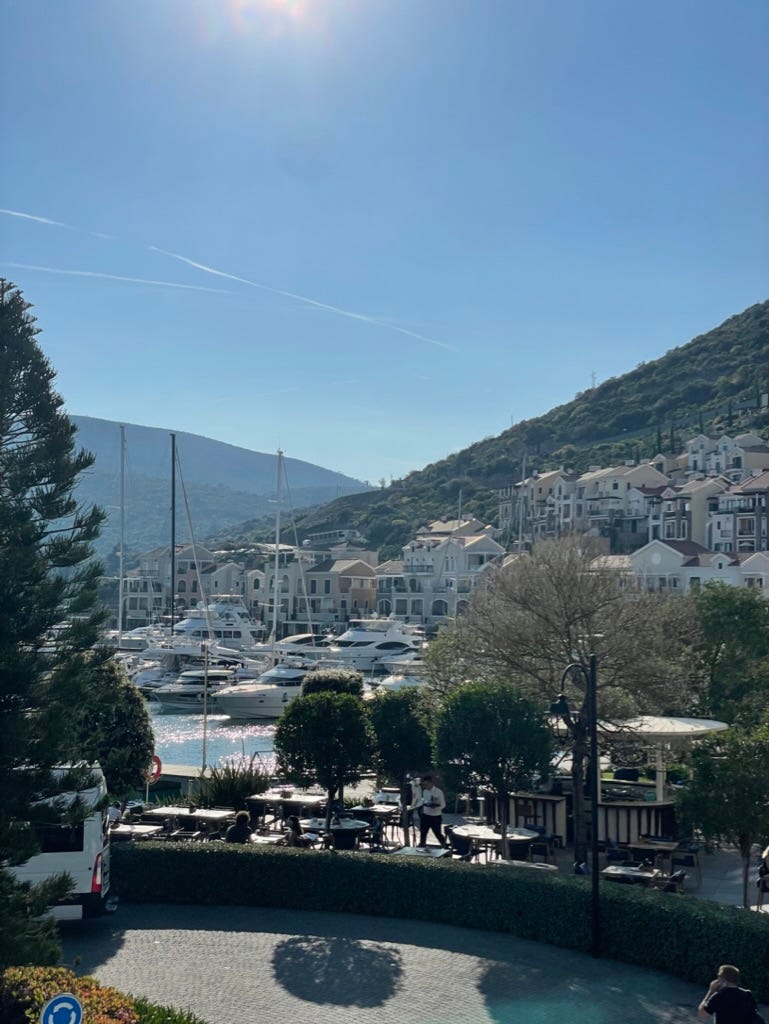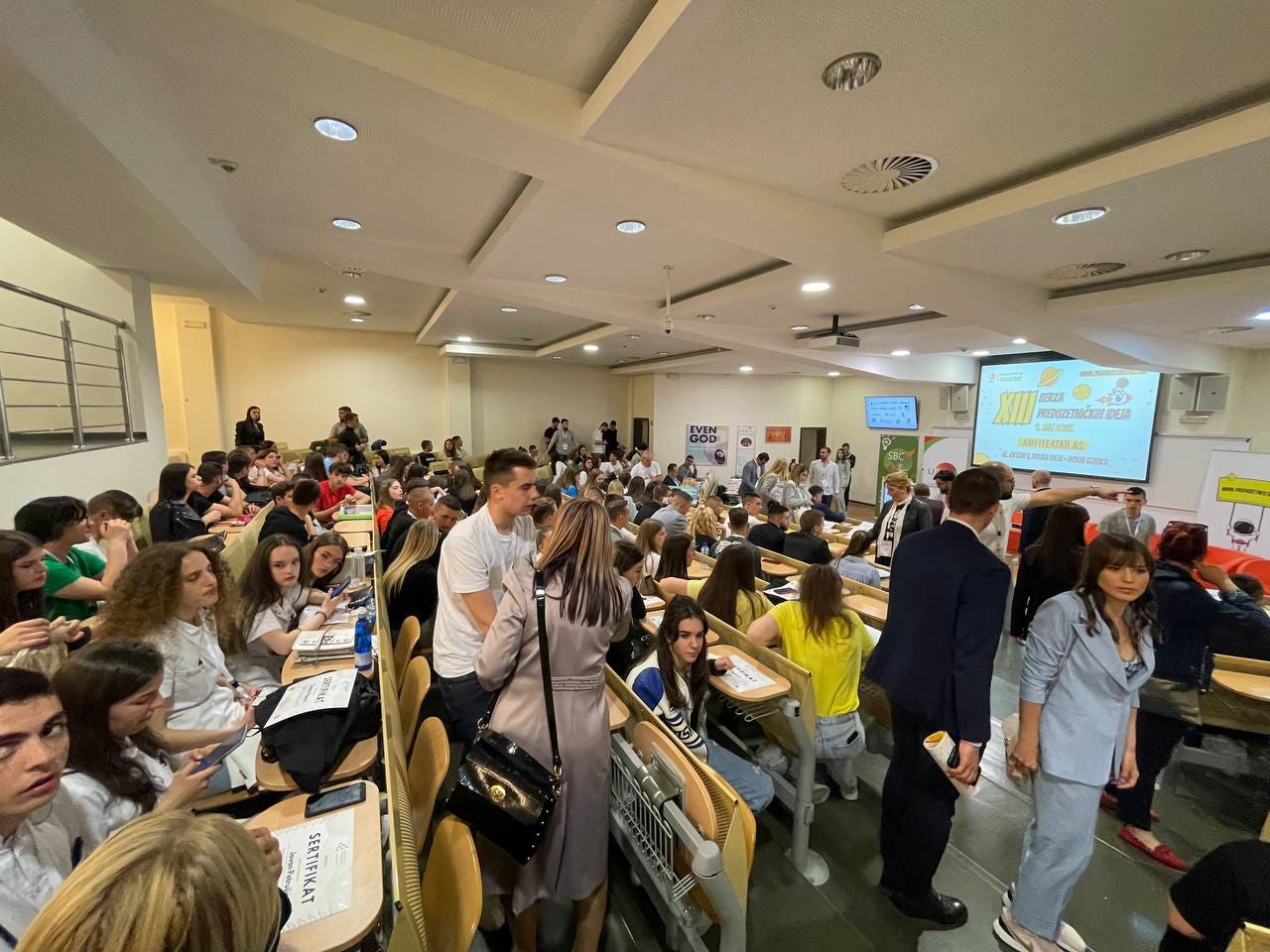If you get past the paywall on The Hullabaloo of Zuzalu: Inside the Secret Pop-up City of Vitalik Buterin’s Dreams article, you’ll read a sensationalized description of life in the two-month long experiment in a pop-up city. Yes, it brought together some of the smartest people on Earth to discuss the most consequential topics of our generation: biotech, longevity, AI ethics, network states, and of course, crypto. No, we didn’t spend every night enjoying a live performance by Grimes. But it was pretty awesome when we did. The article is a fun read but it misses out on some key ideas and themes that I thought were critical to understanding this audacious attempt.
I have plenty of thoughts on all the weird, wonderful, and unwanted elements of Zuzalu. But I want to preface them all by saying that I was only there for a week out of the two months that it ran. There’s a lot that I missed and didn’t get to fully appreciate about Zuzalu. I have a small glimpse into the immense efforts that went into putting it all together and nothing but gratitude for the organizers. It’s certainly not easy being able to pull this off.
First, The Incredible Positives
Zuzalu >> Any Other Conference
It was evident that staying in the same area as others for an extended period of time creates far more meaningful and lasting relationships than seeing them once or twice at a conference. Seems like an obvious observation but if you go into Zuzalu thinking that it’s just another conference, you’d be pleasantly surprised. When you’re forced to run into the same people everyday, you inevitably start asking the real, meaningful questions. As my favorite professor in college always said, there is no quality time without quantity time—you can’t speedrun the process of building fulfilling relationships. Zuzalu gave you the time, and most importantly the environment, to make it happen. The lobby of the Chedi Hotel will be hard to forget for all the serendipitous conversations I had, the old friends I caught up with, and the countless new ones I made.
I’m no crypto veteran but I’ve spent a fair amount of time studying market dynamics through the multiple ups and downs of previous crypto cycles. Narratives tend to shift in predictable ways with every bull and bear market. A recent conversation with someone who has lived through these cycles was a reminder that crypto communities retract inwards during bear markets and lick their wounds. In an industry that is primarily remote first, conferences like EthDenver or EthCC serve as welcome opportunities to spend time in-person, commiserate with fellow nerds, and look to the future. Zuzalu was the perfect opportunity to do all three.
Endless intellectual stimulation
Most people are starved of stimulating, intellectual conversations on things that interest them and things that could interest them. They don’t get a chance to discuss ideas with leading experts everyday—Zuzalu was a unique opportunity for them. The high density of giga-brained researchers, entrepreneurs, and investors made it difficult to not have intense conversations on topics of existential importance to mankind all the time. This pop-up city fostered the kind of intellectually curious environment that most leave behind after graduating college.
A breeding ground for experimentation
I met Manu Alzuru on my flight from Belgrade, Serbia to Tivat, Montenegro and naturally struck up a conversation with him having noticed the Ethereum logo on his hat. As is the case for most people in crypto, we soon found out that we have a whole bunch of mutual friends. We exchanged our life stories and quickly got around to discussing some of the biggest problems we were seeing in crypto today. We shared a similar view that somewhere along the road, folks in the crypto community had stopped building products for everyday people. Given his Venezuelan upbringing and my Indian background, we had both entered the crypto space on the promise that it could meaningfully increase economic freedom. He confided in me that a part of him felt that the whole Zuzalu experiment was immensely elitist. More on that later.
We came around to discussing the problem of self-owned, verifiable digital identity in a world of bots and AI-generated everything. Questions of how we detect AI-generated content, ensure Sybil Resistance, and create value-additive social graphs without extractive intermediaries were ones that we had both pondered. His idea was to use self-issued fiat Venezuelan Bolivar banknotes (ironic for a crypto guy, I know) and the unique serial numbers on them as forms of proving unique identity. At parties around Zuzalu, we started creating a social graph by taking selfies holding this note with someone else also holding their note and uploading it to an app. Eventually, enough people would attest to the fact that you're a real human. The plan was to later do a Trusted Setup-style ceremony like the folks at Z-cash did where you’d burn the note half way and create a unique burn pattern on it, further adding a layer of trustlessness to the network.
The details of this project are secondary: the point is that it’s an interesting experiment that seems unlikely to have been possible anywhere else. Zuzalu provided a fertile testing ground of curious futurists who were willing to partake in all sorts of experiments for a significant amount of time.
The Not-So-Great Things
It’s worth describing the setting for this gathering: nearly all of the talks, workshops, and events for Zuzalu took place at an idyllic resort in Lustica Bay, Montenegro that was a tailor-made vacation getaway for rich Russians. It was a heavily gated community whose management had clearly gone to extreme lengths to maintain a perception of luxury and class.
It also felt…comically fake.
In fact, a common refrain amongst Zuzalu residents was that we were on the Truman Show. The whole resort was an elaborate movie designed for us. If you just swam far enough into the bay, you’d be able to punch right through baby blue wallpaper. At nights, even the moon seemed bigger.
The sound of waves hitting the manicured beach was a soothing constant during the stay. It all felt too good to be true. The restaurants that lined the bay were clearly attempting to mimic the vibe of a London pub or a Parisian cafe without any of the minute details that made it so. All of this would’ve probably been fine if the reality of your situation didn’t smack you in the face the moment you drove five minutes to the top of the hill and away from Lustica Bay. The buildings suddenly became more dilapidated. The roads dirtier and bumpier. It was a stark reminder that the experience for everyone at Zuzalu was a carefully curated one that was day and night from the reality of most Montenegrins. We had come all this way to bask in the company of fellow tech folks and tickle each others’ sophisticated brains without spending much effort getting to know where the heck we were. And it almost didn’t seem to matter.
At one point, I was part of a conversation that painted an absolute nightmare scenario. It went something like this:
“Wouldn’t it be amazing if we could just spend all our time living in communities like Zuzalu around the world? We could move every 3-4 months to a different part of the world with the best weather and just hang out with the same group of people all the time! How incredible!”
I wanted to yell in response: “AND BUILD WHAT? Being in this cocoon is comfortable and convenient because it shields you from the turmoil and complexities of the real world. And that might even be a good thing for a short period of time. But forever?! Heavens no. That’s a recipe to creating absolutely nothing substantial if you’re a founder”
For an industry (crypto) that’s repeatedly accused of not providing meaningful value to everyday people, did it make sense for us to isolate ourselves from the real world? Would that actually lead to better outcomes? Will it allow us to build products for the masses? I think the answer is no.
A trip to Universzitet Donja Gorica
How might we make the next iteration of Zuzalu less drastically removed from the real world? One solution, in my humble opinion, is making meaningful engagement with the local community a deeply embedded priority from Day 1. To those who say “how can we engage the local community without having a community of our own?” I say this: inculcating a sense of service to others is one of the most potent ways to create community.
One of my most relished experiences was visiting a college in the capital city of Podgorica to judge a startup pitch competition. As part of Zuzalu’s outreach efforts, a delegation of volunteers traveled an hour and a half from Lustica Bay to judge the annual event at the Universzitet Donja Gorica. Without a real sense of the Montenegrin market, it was hard to judge whether the startups were actually good (“Uber for xyz”) but nevertheless, it was wonderful to be immersed in a familiar entrepreneurial spirit in a nation I least expected to ever visit. It provided a glimpse into the state of affairs of everyday folks whose country we were inhabiting and a chance to have an impact beyond the dollars we had spent ordering coffee at Lustica Bay. Coupled with Montenegro Day (a day long event with members of Montenegrin government to talk tech policy), it was a great example of taking tangible steps to give back to the wider Montenegrin community.
I would love nothing more than to organize more opportunities like these wherever Zuzalu takes place next.
Despite all the sharp criticism, there was far more to love about Zuzalu than dislike. The calibre of people it brought together, the conversations it fostered, and the long-term thinking it forced were all immensely necessary. Grateful for it all and excited for a second iteration down the road.





